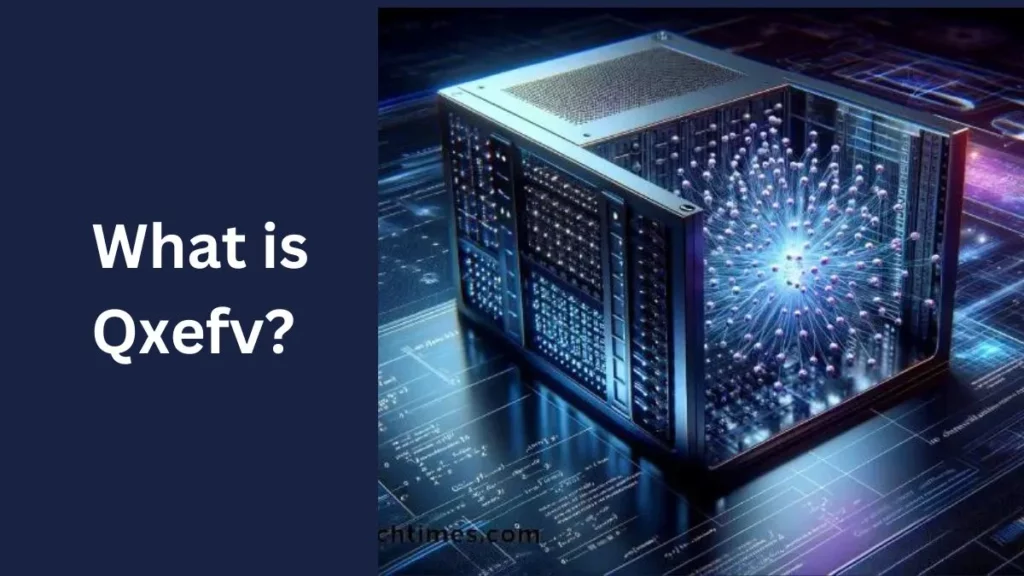Introduction
In an era dominated by rapid technological advancements, QXEFV emerges as a pivotal innovation in quantum computing and encryption. Designed to leverage the enigmatic principles of quantum mechanics, QXEFV promises to revolutionize data security, computational speed, and efficiency across multiple sectors. This article explores the genesis, evolution, and transformative potential of QXEFV, shedding light on its current applications and peering into its exciting future.
Background and Development
Historical Context
Originating in the early 21st century, QXEFV was conceptualized by a visionary team of cryptographers and quantum physicists. Their goal was to create a scalable, quantum-resistant encryption framework that could withstand the challenges posed by both classical and quantum computing threats. The foundational research focused on quantum entanglement and superposition, aiming to exploit these phenomena to create unbreakable encryption protocols.
Key Milestones
- 2023: The unveiling of the first QXEFV prototype, demonstrating quantum encryption in real-world scenarios.
- 2027: Introduction of QXEFV 2.0, enhancing capabilities to include quantum error correction, vital for practical quantum computing.
- 2030: QXEFV technology enables the first quantum-secure blockchain, revolutionizing fintech by offering unparalleled security features.
Current Applications and Impact

Real-world Applications
QXEFV’s influence spans several key industries:
- Cybersecurity: Provides robust, quantum-resistant encryption, protecting against evolving cyber threats.
- Healthcare: Secures sensitive patient data and enables secure sharing across platforms without compromising privacy.
- Telecommunications: Employs quantum key distribution (QKD) to safeguard communications, ensuring that any attempt at interception is detectable.
Impact Analysis
The deployment of QXEFV has led to a paradigm shift in data security and privacy. Organizations that have integrated QXEFV report significantly lower incidences of data breaches and intrusions. Its impact extends beyond mere technical capabilities, influencing regulatory frameworks and cybersecurity policies worldwide.
Future Prospects
Emerging Trends
Innovations in quantum sensors and IoT devices present new opportunities for QXEFV. Integrating QXEFV with these technologies could dramatically enhance the security and functionality of smart devices, from urban infrastructure to personal gadgets.
Predictions and Forecasts
Experts anticipate that by 2040, QXEFV will be at the heart of global communications networks, offering a new standard for security. Its adaptation might also see a transition into consumer markets, providing individuals with tools previously available only to large corporations or governments.
Challenges and Considerations
While QXEFV’s prospects are overwhelmingly positive, several challenges persist:
- Technical Complexity: The quantum nature of QXEFV requires specialized knowledge, limiting its immediate widespread adoption.
- Scalability Issues: Current quantum technologies are not yet scalable at a cost-effective level for everyday applications.
- Regulatory and Ethical Concerns: As with all powerful technologies, there is potential for misuse, necessitating stringent ethical and legal controls.
Conclusion
QXEFV stands as a beacon of modern technological achievement, with vast applications and potential to shape future innovations. As we navigate its complexities and integrate it into our digital infrastructures, QXEFV not only promises enhanced security but also ushers in a new era of quantum-aware applications, making it a cornerstone of tomorrow’s technological landscape.
FAQs
- How does QXEFV differ from traditional encryption methods?
- Unlike traditional methods that use fixed mathematical algorithms, QXEFV utilizes quantum mechanics, which offers theoretically unbreakable encryption.
- What skills are necessary to work with QXEFV?
- A strong background in quantum mechanics, cryptography, and computer science is essential for those looking to specialize in QXEFV technologies.
- Can QXEFV be integrated into existing digital systems?
- Yes, but it requires significant modifications to accommodate the quantum nature of the encryption.
- What are the potential societal impacts of widespread QXEFV adoption?
- While enhancing security, the adoption of quantum technologies like QXEFV could also lead to significant shifts in job markets, privacy laws, and international data governance.
You May Also Read:https://buzzinfodaily.com/pixwoc/


